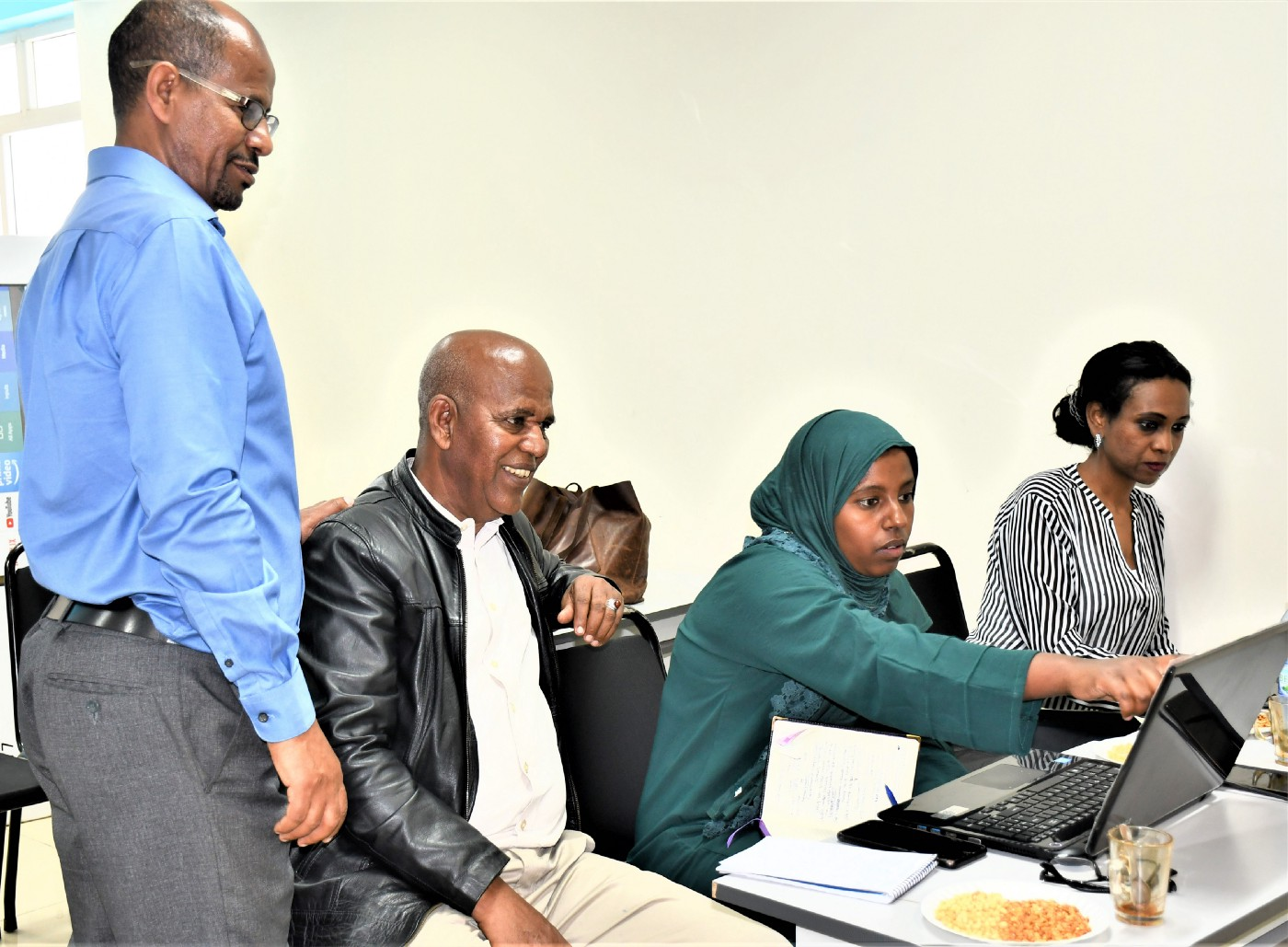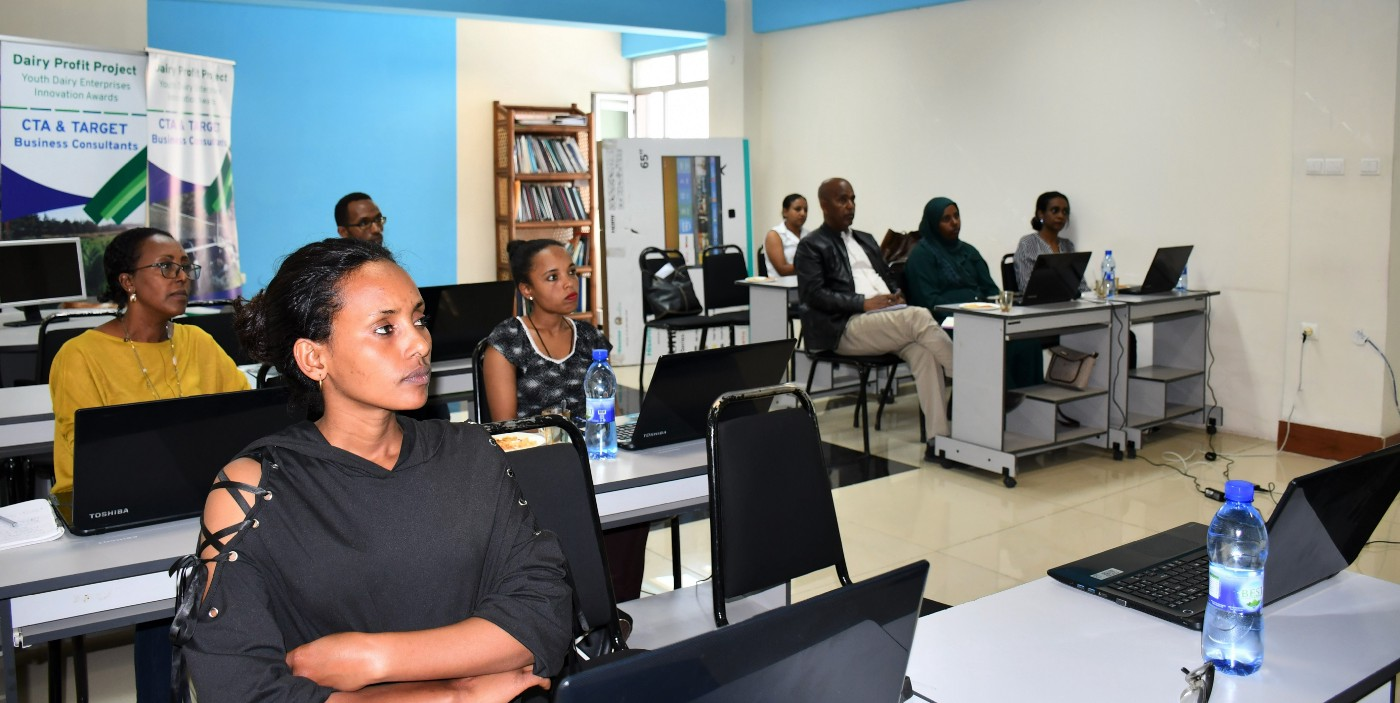USAID CATALYZE Trains Business Advisory Service Providers to Improve Financing Prospects for SMEs.
In vibrant financial ecosystems, Business Advisory Service Providers (BASPs) play a vital role in unlocking financing for small and medium-sized enterprises (SMEs). BASPs are business consultants, lawyers, incubation hubs, accountants, and other intermediaries who support actors on the demand or supply-side of capital during the transaction process. With the right capacity and experience to support SMEs and investors, they can accelerate and direct large volumes of investment. Too often, however, BASPs in frontier markets lack the connections, experience, and market knowledge to play this role effectively.
Through a new training program, USAID CATALYZE is equipping BASPs to contribute to the growth of underserved markets, sectors, and enterprises, including SMEs. Implemented by Palladium, USAID CATALYZE is an eight-year program designed to mobilize $2 billion in private capital for development impact, especially in underfinanced social sectors and frontier markets. CATALYZE uses blended finance solutions and collaborates with local and international financial institutions, investors, private enterprises, and intermediaries to unlock financing in 27 countries across the globe.
One of the ways CATALYZE mobilizes investment is by improving the intermediation of capital via performance-based incentives and training to BASPs. CATALYZE developed and implemented a BAS training and toolkit in Burkina Faso, Ethiopia, and Niger, to enable BASPs to bridge the demand and supply-side challenges preventing transactions in frontier markets.

Photo credits: USAID CATALYZE
Target Business Consultants PLC, one of the nine BASPs USAID CATALYZE works with in Ethiopia, provides training on financial analysis to senior financial management staff from SMEs in the agriculture, pharmaceutical, and manufacturing sectors.
Transaction challenges in frontier markets
In frontier markets, demand and supply actors face multiple technical and cultural challenges to completing transactions. For instance, on the demand side, CATALYZE found that in Sub-Saharan Africa, SMEs operating in the agricultural, trade, or services sectors are often most familiar and comfortable with debt or grant finance; they tend to look for loans or grants for start-up capital and loans for working capital, capital expenditure, and operating expenditure. A limited number of later-stage and larger SMEs are familiar with and potentially able to attract equity finance, but they are the minority.
Moreover, SMEs often have a limited understanding of the transaction process (for all funding types), hampering their ability to successfully engage with financial institutions and investors and navigate their funding process. SMEs often lack formal documentation and strong internal processes in areas such as accounting, operations, or reporting, which are usually pre-requisites to investment. They also often have limited, if any, experience writing compelling loan applications or pitch documents.
On the supply-side, in sub-Saharan Africa, debt tends to be the most widely available form of capital. Fewer equity vehicles are available and tailored to market needs; they also tend to be less understood. Financiers are often unwilling or unable to provide capital to early-stage companies, which they consider too risky. In addition, there is also often a lack of financial instruments adapted to local challenges such as addressing SMEs’ limited access to collateral or adapted to sector specific challenges (e.g., climate specific hazards, the unpredictable nature of cash cycles, and the competition from less expensive imported goods in the agriculture sector).
These challenges are exacerbated for women and youth-led businesses, which are often informal and smaller in scale. Women and youth tend to have even fewer property rights and asset control for collateral, less awareness of financing opportunities, and less knowledge of and access to key networks. Even when they can access credit, interest rates are often high and put them into unattainable debt cycles.
Challenges faced by women-led SMEs in frontier markets supported by CATALYZE
-
In Niger, though women make up ~70% of the agriculture workforce, they have less access to capital, productive assets, and technical knowledge (OCA, Niger Market Assessment). As a result, women-managed plots tend to produce 19% less per hectare than those managed by men.
-
In Ethiopia, 50% of female SME managers cite access to finance as a key obstacle for growth, with only 3% of female managers using bank financing, compared to 8% for their male counterparts (Precise Consult, Financial sector overview).
-
In Ethiopia, banks may require more than 100% of the loan amount as collateral, and women are less likely to have ownership rights to key assets (i.e., property) that can serve as collateral (Global Impact Investing Network, Landscape for Impact Investing in East Africa).

Photo credits: USAID CATALYZE
Despite the promise of BASPs to improve capital intermediation, there are often significant gaps in the ability of BASPs to meet the needs of demand actors requiring support to access finance, as well as the needs of supply actors that require support to better source, screen, and monitor attractive SMEs.
On the demand side, many BASPs in frontier markets lack proficiency in key business advisory skills, have limited sector-specific expertise, and lack strong relationships with financiers. This affects their ability to provide adequate support to SMEs to lead them through the transaction process successfully. With limited networks, BASPs also often struggle to identify and introduce clients to the right financiers that might meet their business needs.
On the supply side, many BASPs lack strong relationships with diverse financiers or do not have a good understanding of their financing mandates and requirements. This, coupled with limited sector knowledge and networks (e.g., beyond urban centers and widely known SMEs), hampers their ability to generate strong pipelines of interest for specific funders. BASPS are often concentrated in urban areas, making it difficult for them to source and support due diligence activities. Limited technical knowledge (e.g., in monitoring and evaluation, impact measurement) also constrains their ability to provide adequate post investment monitoring of SMEs in rural areas.
BASP capacity building training and toolkit
To increase transactions between sources of capital and SMEs, BASPs in frontier markets need to build their technical capabilities, pipelines, and business models. CATALYZE developed various training modules to build BASP capacity around: 1) Pipeline Development to improve BASPs’ ability to build a suitable pipeline of SMEs likely to succeed in raising capital 2) Transaction Support to help BASPs understand their role at each stage of the transaction process and explains how they can support demand and/or supply-side actors. 3) Investor Relations to equip BASPs with tools and best practices to engage investors before, during, and after transaction close.
The pipeline development module aims to improve BASPs’ ability to build a suitable pipeline of SMEs likely to succeed in raising capital. The training introduces the investor landscape and the different types of financiers along a spectrum, with grant providers at one end and commercial debt and equity providers at the other. It outlines how different types of investors prioritize financial returns vs. social impact differently and the negative correlation that often exists between the two. Participants are introduced to two possible approaches to source pipeline: bottom-up (through personal and professional networks) or top-down (desk research using lists of registered companies) to find SMEs that will suit different investors. Then they rank a sample list of SME profiles against set prioritization criteria such as investor preference, risk, return, or impact. This allows BASPs to determine how much support each SME needs to achieve investment readiness and prioritize who and how they support in their pipeline of SMEs accordingly.
The transaction support module outlines the role of BASPs at each stage of the transaction process and explains how they can support demand and/or supply-side actors. This module provides a framework for BASPs to thoroughly assess where to support an SME as they prepare for fundraising. Key factors to look for are a clear articulation of how the business generates revenue, understanding costs and customers, and how the business will grow over time. Participants next recall the investment landscape to think about how to identify potential investors and prepare key documents to engage prospective investors, including financial models and investor memorandum, before the due diligence process starts. The training emphasizes the importance of having a clear narrative and tailoring materials to the financial instrument and investors or lenders that the SME is targeting. Lastly, participants assess investment term sheets to understand the implications of key terms during the deal negotiation and determine the best terms for different SME profiles.
The role of BASPs in the transaction process
The investor relations module aims to equip BASPs with tools and best practices to engage investors before, during, and after transaction close. To this effect, the module recaps the investor landscape and analyzes investor motivations in frontier markets. Some investors, for example, international donors and private investors, may need support to understand specific value chains or identify pipeline opportunities. Like local banks and alternative lenders, others are more likely to seek support designing products that fit SME segments to increase their lending activities. Finally, participants explore how they can build their investor network through meetings, events, and producing materials such as market reports. Frontier markets are typically data-poor environments, and so BASPs can add significant value to investors by creating their own databases of recent transactions, sectorial insights, and thought leadership papers. These build credibility with investors and can position the BASP as the go-to on-the-ground market expert who can advise future transactions.
This article was originally published by USAID CATALYZE.

